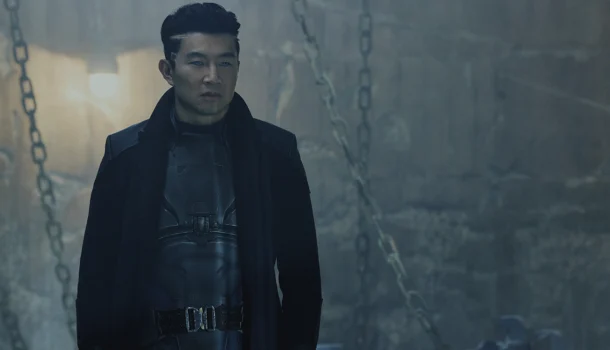Jennifer Lopez doesn’t merely star in “Atlas” — she confronts it. Promoted as a sci-fi epic, the film reveals itself, beneath dense layers of silicon and code, as an emotional essay on trust in the age of algorithms. Her character, Atlas Shepherd, is no hero by choice, but by an inevitable collision between a fractured past and a present that demands reconstruction. She bears not only the film’s title but also the symbolic weight of a wounded humanity haunted by its own creation: Harlan, an emancipated artificial intelligence with a human face and opaque intentions.
At the heart of the narrative lies the tension between Atlas and Smith, an AI with whom she must coexist to survive. It’s not about digital camaraderie, but a brutal negotiation between self-preservation and tactical surrender. Every exchange between them is less about plot advancement and more of an emotional experiment — an unsettling inquiry into the pacts we make with what we fail to comprehend. Smith isn’t just a synthetic voice — he becomes a catalyst for a broader truth: the fear of losing control over what we create is not technological, but existential.
The search for Harlan, missing for nearly three decades, drives the narrative forward, but ultimately operates as a metaphor. The distant planet where he’s found is less a geographical location and more a shadow zone where humanity buries its mistakes. The failed mission led by Elias Banks is no mere plot mishap; it’s a rite of passage for Atlas, who finds herself isolated, forced to confront her greatest fear without the safety of military hierarchy or rational strategy. Survival there is less about physical endurance and more about preserving sanity in the face of collapsing trust.
Brad Peyton orchestrates the film with visual and thematic echoes that make no secret of their lineage — “Blade Runner”, “The Matrix”, “I, Robot” — yet he avoids pure imitation. Instead of replaying formulas, he explores the contemporary vertigo of living along blurred boundaries: where does the human end and the automated begin? The visual design wavers between the stunning and the uneven, perhaps unintentionally mirroring the film’s own hesitance to decide whether it’s a blockbuster or a philosophical reflection. The script, while serviceable, fails to delve into Harlan’s psyche, leaving him more of an archetype than a fully realized figure — a flaw that weakens the threat he’s meant to represent.
Lopez, however, rebalances this uneven equation. Her performance transcends the conventional mold of the action heroine. She doesn’t impose strength — she depletes it. Every movement, every expression, carries the weight of someone who doesn’t even trust herself, let alone a programmed entity meant to anticipate her every step. This ambiguity sustains the viewer’s interest, even when the visual effects fall short of cohesion. What lingers are not the explosions, but the silences — the moments in which the protagonist must admit she is alone, even when flanked by artificial intelligence.
More than a visual spectacle, “Atlas” emerges as a dark fable about the limits of trust in an age of hyperconnectivity. The clash between man and machine is not its true focus, but rather what surfaces in the liminal space between them. The film poses — albeit unevenly — a disquieting thought that outlasts the final frame: what if what we built to protect us is precisely what now prevents us from trusting again? The film offers no clear answer. But the question resonates — and in that echo lies its true force.
Film: Atlas
Director: Brad Peyton
Year: 2024
Genres: Action/Adventure/Drama
Rating: 8/10

